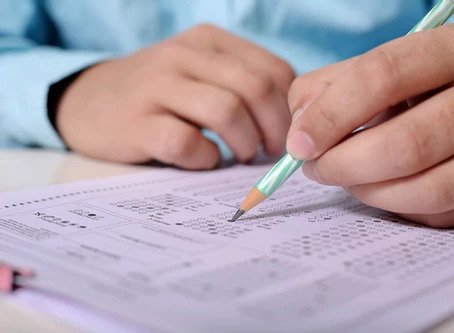
How to achieve a Scholarship in Australia !!
At Choice Education Group, we offer scholarship preparation courses that have been designed for students who are going to undertake either a Select Entry test or Scholarship test. These tests are taken so your child can attend the school of their choice, for acceptance into their school accelerated programs or for the award of tuition cover.
Before you decide if this course or testing for a scholarship is right for your child, you may want to know more about the type of tests, they will be required to undertake, how hard it is and what key components are required. We break it down for you and give you an understanding of the commitment needed to complete the tests and what your child is likely to face when undergoing these tests.
Obtaining a Scholarship
Scholarships can be obtained by any child, and apart from the testing requirements we will be exploring below, some schools have further requirements. These may include practising a particular faith, being experienced at an instrument, must be Aboriginal or Torres Strait Islander decedent or require you to provide a portfolio (The Good Schools Guide, 2020).
Style of test
The tests that children in years 5-6 and 7-8 take are basically the same. The level of skill required is different for the different grade ranges, and the complexity of the material varies. The specific questions for the maths sections differentiate between grades.
Standard school-based tests are content-based summative tests and, from these teachers gain knowledge of what a student has remembered. Scholarship testing is different and requires a different set of skills. These tests are aptitude or proficiency tests, and these judge student’s overall skill set, knowledge and proficiency in literacy and numeracy.
With this type of testing, it’s not merely learning the content for the test. It’s more about building foundational knowledge, skills, abilities and strategies that assist you in performing strongly on the tests.
Test difficulty
When our online tutors teach your children/student about the difficulty of a scholarship test, they explain that the tests are challenging. The tutors also share how test preparation requires listening to the advice of their tutor, and to work hard for any chance of success.
Generally, only driven and the most intelligent students apply for scholarships or undergo select entry tests. The tests they undergo are pitched at a year ahead of your child’s grade and are within time constraints that are challenging because they are unlikely to been exposed to them before.
Your child will be directly compared to other students sitting the test at the same time. Even if they do well, they may still be unsuccessful because of unusually advanced students. While this isn’t a reflection of your child’s ability, it is the reality of the difficulty of testing for a scholarship. Simply, it isn’t easy, and these tests are designed to challenge and extend your child’s academic abilities.
What the test looks like
While our tutors adequately prepare students for scholarship tests, generally the tests aren’t all the same from school to school. There will be similarities, but the preferences and requirements of different schools will vary, including the name of the tasks. There are limited options to those creating the tests so there will be similar tasks and sections of the tests, which our online tutors prepare students for.
Once you know which schools your child is going to be testing for, we strongly recommend researching the exact tests they will be using so they can adapt what they are learning to those tests.
Standard Tasks
When being tested for a scholarship, there are six standard tasks that your child will undertake that are categorised by subject and type. Examples of these tests can be found on the Victorian Education & training website which will give you a better understanding of what to expect.
Type
Ability tasks include:
-
Verbal Reasoning, Numerical Reasoning, and Abstract Reasoning. These tasks are similar to NAPLAN tests. They are designed to determine your child’s natural literacy and numeracy skills and their ability to reason and use logic to solve problems.
Achievement tasks include
-
Academic Maths, Reading Comprehension, and Writing. These are different from ability tasks as they cover subjects/skills/topics learnt in the classroom and are on the curriculum, up to the year level of the test. They also test if students have the skill set and knowledge expected of them for a particular subject.
Subject
English tasks include:
-
Verbal Reasoning – Students usually have 30-40 minutes to complete their tasks in multiple-choice format. Students must use their grammatical knowledge, literary skills and reasoning ability to complete questions, riddles, word and language problems.
-
Reading Comprehension – This task also takes 30-40 minutes in multiple-choice format. Students will receive a reading booklet of different text types. These include poetry and narrative texts, non-fiction reports or book reviews.
-
Writing – This task is separated into two parts, with each piece taking 15-20 minutes to do. One task a creative/narrative writing exercise, the other an analytical/argumentative essay. Students will be given a prompt, and sometimes are given two to choose between.
Maths tasks include:
-
Numerical Reasoning – Students generally have up to 40 minutes to complete this task. They need to use their maths knowledge, numeracy and reasoning skills to complete multiple-choice tasks.
-
Academic Maths – These mathematics questions your child has likely learnt within the classroom and will take between 30-40 minutes to complete. These are not sectioned out, so students need to identify which formulas they need to use on each question.
-
Abstract Reasoning – This section of the test takes 30 minutes to complete. Abstract reasoning requires students to solve problems using pattern recognition and spatial awareness. The questions are presented to the students without the use of words.
It’s rare, but there is a section that is sometimes added titled General Ability. It is usually only used in place of one of the other tasks and is a mix of abstract, verbal and numerical reasoning.
Choice Education Group support
Not only do we offer courses specifically to work towards students gaining a scholarship, but we also offer support and information about the how to get the Australian Scholarship process on a private Facebook group. We also offer two scholarship tutoring options to suit different budget types so that all children have the opportunity.
Scholarship Institutions
Often schools work in partnership with scholarship institutions such as Edutest, Academic Assessment Services and ACER. Edutest gives you access to practice tests, ACER gives the details of all the schools Australia wide that participate in scholarship testing and Academic Assessment Services give you information on what type of tests they offer.
Moving Forward
From this information, you get a sense of why our tutors work hard to prepare your child for a scholarship or select entry test. The tests are hard and require the use of skills that may not be covered in the classroom. These tests also need students to think differently and within a time frame which adds a level of pressure your child may not have experienced before. Knowing what is expected of your child and the amount of work they need to achieve to get to the point of readiness can certainly ease the uncertainty. However, success is most often achieved by your child if they are committed long-term to the tutoring sessions that will prepare them for whatever they may face in the test and listen to their tutor’s advice.
Does taking a scholarship test sounds like something your child is aiming for? Want to know how we can help? Contact us for further information.







Leave a Reply